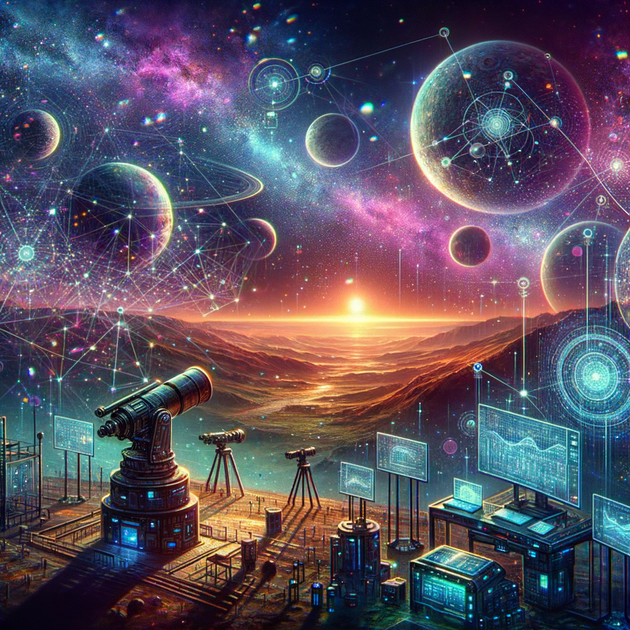How AI is Ushering a New Era in Exoplanet Discovery: Beyond Our Solar System
Gazing at the stars has always stirred our imagination—from ancient astronomers documenting star patterns to modern scientists exploring the vast cosmos for signs of life. But the quest to discover planets orbiting stars outside our solar system, known as exoplanets, has become a thrilling frontier in space exploration, propelled by revolutionary advancements in artificial intelligence (AI).
The Journey to Discover Exoplanets
Over the centuries, technological innovations such as advanced telescope optics, high-resolution imaging cameras, and space missions have expanded our understanding of the universe. The first significant breakthrough came in January 1992, where astronomers Aleksander Wolszczan and Dale Frail identified exoplanets by observing timing irregularities in the pulses of radio waves from a distant pulsar.
Challenges in Exoplanet Detection
Despite technological progress, exoplanet discovery remains a formidable challenge. The vast amount of data generated by space missions and telescopes makes traditional data analysis techniques inadequate. Factors like variable sizes, extreme distances, brightness contrast with host stars, and obscured orbital positions further complicate this cosmic detective work.
AI: The Game-Changer in Exoplanet Research
Enter artificial intelligence. Researchers are leveraging AI to revolutionize exoplanet discovery. Recent studies demonstrate that AI models can analyze enormous datasets with unprecedented accuracy and speed, transforming how we explore the universe.
Case Study: University of Georgia
Researchers from the University of Georgia applied machine learning to identify planets in formation within dense, dust-filled discs around young stars. Training AI with synthetic telescope data significantly improved the accuracy of spotting exoplanets in real telescope observations, confirming previously unknown planets.
“This is an incredibly exciting proof of concept,” said Cassandra Hall of the Exoplanet and Planet Formation Research Group at UGA. “We knew that we could use machine learning to find known forming exoplanets. Now, we know for sure that we can use it to make brand new discoveries.”
AI and Planetary Interactions
A team from the University of Bern, the University of Geneva, and NCCR PlanetS Switzerland, in collaboration with Disaitek, trained a neural network on star brightness data to predict the effects of planetary interactions. This method, unlike traditional transit techniques, identifies subtle patterns induced by planetary movements, enhancing exoplanet detection capabilities.
The researchers believe this AI-based method can be adapted for various Earth applications, such as monitoring for illegal dumping.
The Search for Earth-Like Planets
The ultimate goal of exoplanet research is to find another Earth-like planet that could potentially harbor life. Scientists define a star’s habitable zone as the region where liquid water can exist on a planet’s surface, a critical factor for sustaining life as we know it. AI could be pivotal in this quest, offering more efficient and accurate analysis of astronomical data to identify Earth-like exoplanets.
AI’s Role in Future Discoveries
AI’s ability to sift through vast datasets and pinpoint patterns that humans might miss makes it an invaluable tool in exoplanet research. For instance, NASA is already exploring AI to develop next-generation self-driving planetary rovers and integrating AI with the evolving metaverse to feed and enhance AI models.
Exciting times lie ahead as AI continues to push the boundaries of space exploration. With each discovery, we edge closer to answering the profound question: Are we alone in the universe? The possibilities are as infinite as the cosmos itself.
What do you think the future holds for AI in space exploration? Share your thoughts or predictions in the comments below!

